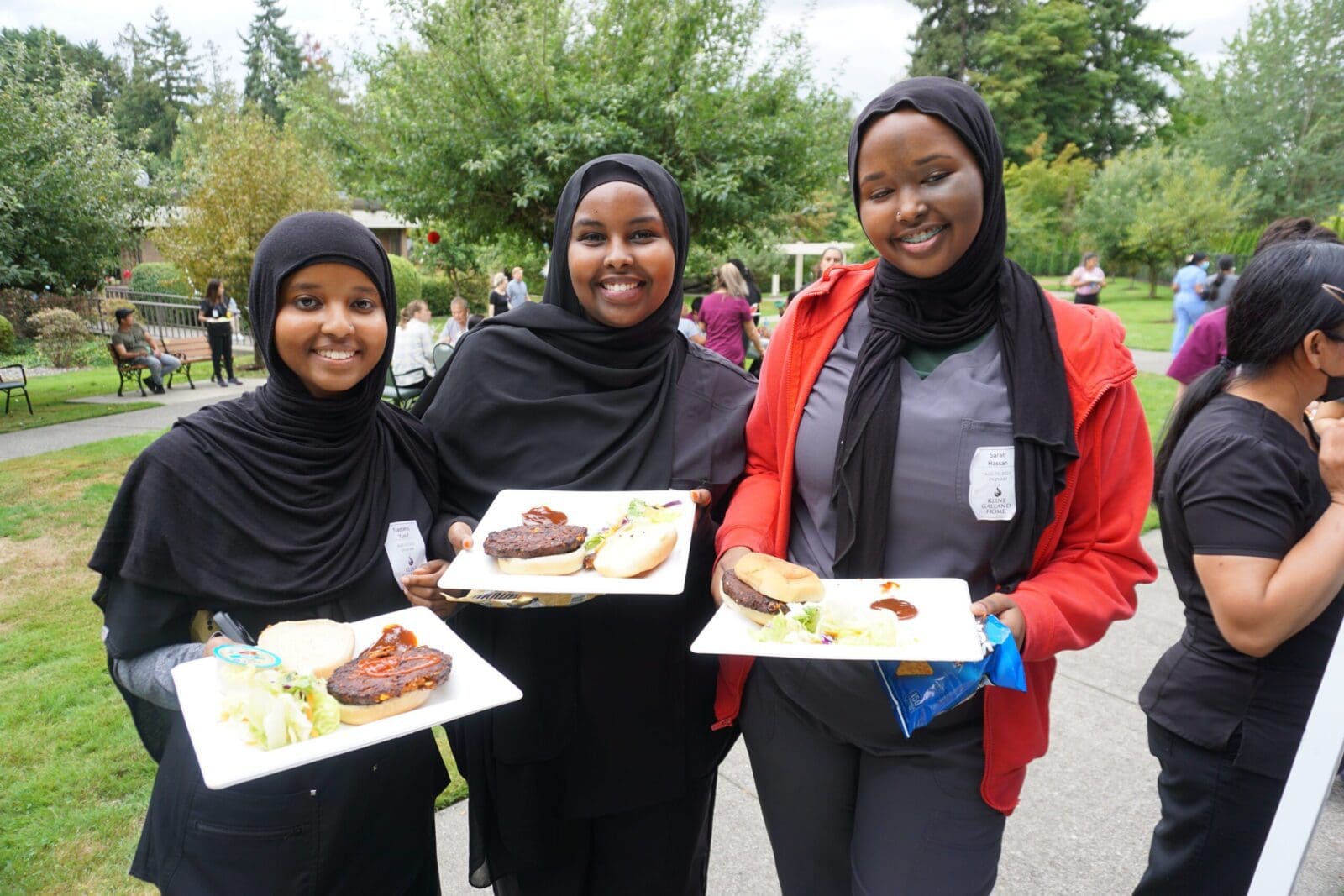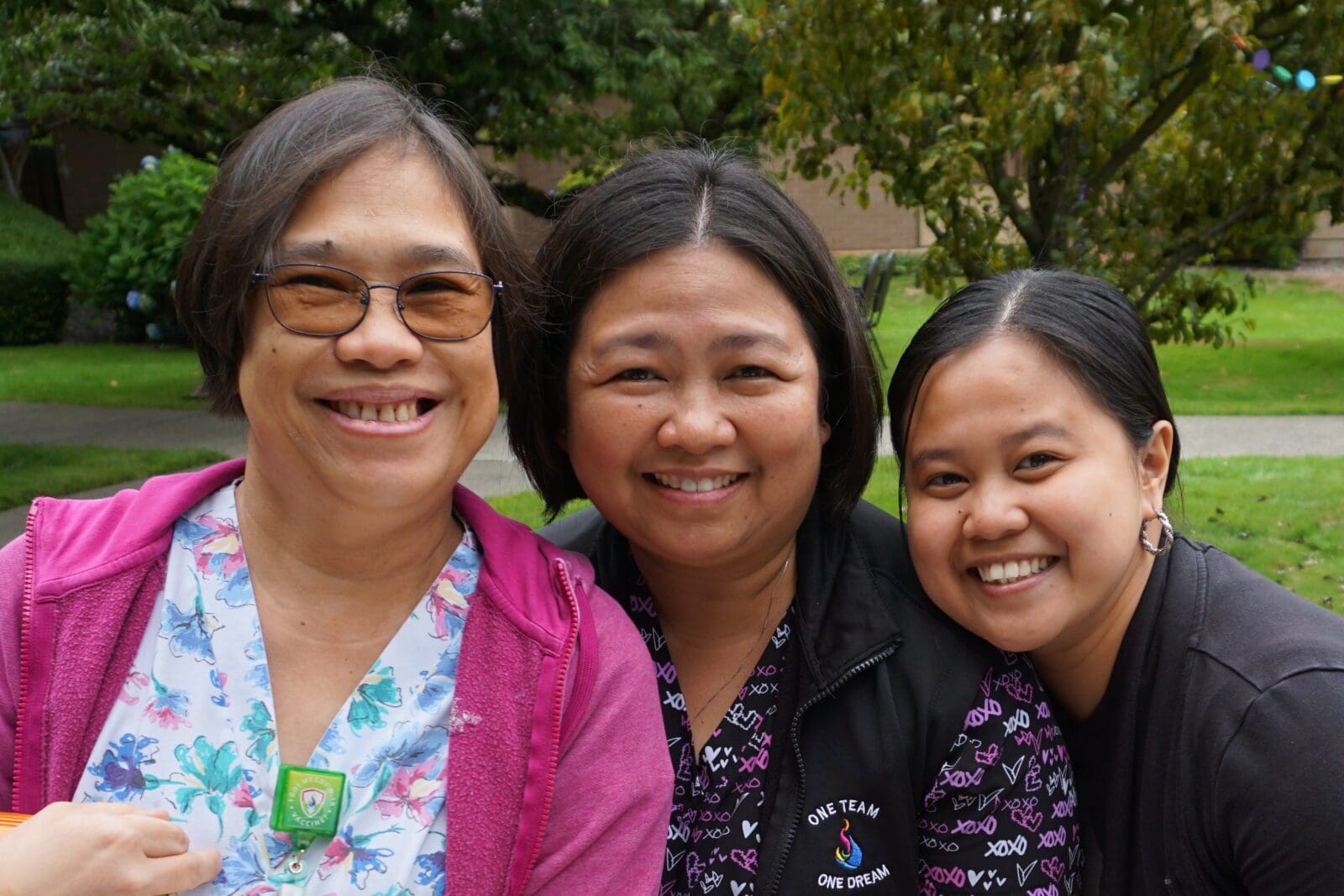Our employees are the heart and soul of our organization!
As such, enjoy competitive salaries, benefits and advancement opportunities all within an exceptional working environment. You’ll experience the caring support of the entire staff as well as the appreciation of our residents, clients and families.
Inclusive environment: Our employees are from a wide variety of diverse backgrounds with varied experiences, both personally and professionally. They come together to form a beautiful quilt that covers our residents and clients with exceptional care. Team members one and all have the support of management and the appreciation of our seniors and their families.
Employee recognition: Kline Galland employees are the face of our organization day-in and day-out. As such, we place an extremely high value on the contributions (both expected and unexpected) of our staff. We celebrate those contributions with impromptu events … with fun, quarterly recognition … through our Over the TOP awards … and during our annual Staff Appreciation Week. “Thank you” is an important phrase in our vocabulary – one we use often and with great pride for a job well done.
Kline Galland Home is an amazing place to work! I really value the communication between staff and departments, which allows me to more effectively do my job and helps to ensure the best care possible for our residents and patients. Throughout the Covid-19 pandemic, I have always felt that KG is doing as much as they possibly can through testing, PPE, etc, to keep not only the residents safe, but also the staff. Staff appreciation events also make EVERYONE in the building feel like a valuable employee and a member of the KGH family.
Lesley Jones, MS, RDN, CD Clinical DieticianI love working at Kline Galland because of the opportunities for growth, the beautiful facilities and of course the residents and co-workers. The management is supportive and it feels like a family.
Eric Dumaguin, Support Services Assistant Supervisor
- 0
- 1
Family spirit: Kline Galland offers a friendly atmosphere of helpful employees and accessible management in every department and service we provide. One unique example of our family spirit is our Marguerite Loebel Family Interest Free Loan Fund that cares for staff in financial need. Another is our annual awarding of the Barry Schneiderman Nursing Scholarships; plus the educational scholarships to children and grandchildren of employees through the Arva Gray Scholarship Fund.
Advancement: The breadth and depth of Kline Galland’s health care services is vast and continually evolving. As such, we offer many opportunities for professional growth and advancement, and are committed to our employees’ continuing career development.
Plentiful supplies: Kline Galland facilities are well-stocked with the necessary supplies to help our employees succeed in doing their jobs well in a timely fashion.
Staff-to-resident ratios: Favorable ratios allow employees to spend more meaningful time with residents helping fulfill our mission of exceptional care by exceptional people.
Pride: Kline Galland is a well-known, highly respected, established provider of expert, compassionate senior care. Our management, our team members, our volunteers, our donors, and, of course, our residents and families all take pride in their association with Kline Galland.
Free parking to boot: Rare in the City of Seattle is free parking. But rare is who we are. That is why Kline Galland employees enjoy either free or paid-for parking.
CAUTION: Please be forewarned–the energy and enthusiasm throughout Kline Galland are contagious! Expect to be greeted with a smile and a “can-do” attitude. You may find housekeepers serving breakfast, managers participating in activities, nurses singing in the hallways.
KLINE GALLAND CAREERS
Our Energy & Enthusiasm are Contagious
As a leading provider of senior care, we offer talented and committed individuals an extraordinary opportunity to experience an exciting and rewarding career with room to grow. Join the best of the best!




